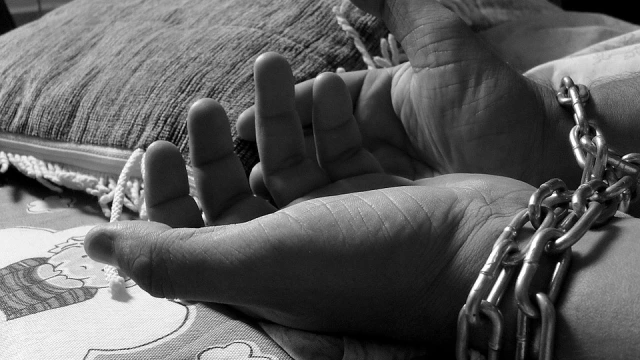
The fight against modern-day slavery
Approximately 1 out of every 150 people is a victim of human trafficking, an innocent child, a young girl, or a teen. An estimated 50 million lives languish in the darkest alleys of the world due to the second-largest international criminal enterprise – human trafficking.
I recently heard a story of a brave, courageous, and all-American girl who was born to loving parents eager to see her grow, thrive, and achieve the American dream. She was a hard worker juggling the rigorous academic curricula at her high school and her job.
Unfortunately, she met a human trafficker skilled in manipulation and coercion, posing as a trusted adult. Because of her quality education, she detected the signs of his grooming methods and immediately reported the crime to her parents and the authorities. For this young girl, human trafficking prevention education was critical to her safety.
This story proves the urgent need for arming educators, students, law enforcement officials, and parents with the necessary tools to combat this borderless and indiscriminate crime.
From my experience as a father, grandfather, and now legislator, one of my top priorities is to pursue policies that abolish modern slavery, target traffickers, and safeguard our most vulnerable from falling prey to vicious criminals, specifically through prevention, awareness, and survivor relief.
When it comes to awareness, law enforcement officers and first responders play a critical role on the front lines of public safety. Bills like the Human Trafficking Awareness Training Act, introduced in the 117th Congress, expand Federal Law Enforcement Training Centers’ (FLETC) and state-of-the-art training opportunities so law enforcement agencies can better recognize and prevent these crimes.
Stopping traffickers in their tracks starts with education. In Congress, I backed the Human Trafficking Prevention Act, a bill to require the posting of contact information of the national human trafficking hotline in a visible place in all federal buildings, in the restrooms of each U.S. aircraft, airport, over-the-road bus, bus station, passenger train, and passenger railroad station, and at each port of entry. By ensuring individuals in every corner of the world know the signs of human trafficking or exploitation and how to report it, we can make a dent in these crimes.
While in captivity, survivors of human trafficking are often coerced into breaking the law by their traffickers, leaving them with lifelong criminal records and hurdles to employment and education. I introduced the Trafficking Survivors Relief Act to create a commonsense pathway to vacate non-violent offenses committed as a direct result of having been trafficked. All victims of human trafficking deserve to feel safe as they heal.
A whole-of-government approach is necessary to fight modern-day slavery. Legislation like the Frederick Douglass Trafficking Victims Prevention and Protection Reauthorization Act reauthorizes and synchronizes anti-trafficking programs across the federal government and its agencies to increase support for survivors and enhance the prosecution of criminals.
In my home state of Utah, local organizations, the state government, and stakeholders have locked arms to expand trafficking prevention education for students, educators, law enforcement officials, and parents. The Utah Trafficking in Persons Task Force, Malouf Foundation, and Dahlia’s Hope are some of the institutions helping Utah achieve great strides in this fight.
Our above-all approach to fighting human trafficking needs to be global, and diverse voices and professionals of all backgrounds need a seat at the table. I was proud to join the Parliamentary Task Force on Human Trafficking, a consortium of Parliamentarians, lived-experience experts, and government leaders to combat human trafficking. Ending these crimes will not be accomplished by one individual, and I am thankful for the efforts of this task force and others collaborating around the globe — and the clock — to solve this worldwide humanitarian crisis.
By presidential proclamation since 2010, January has marked National Human Trafficking Prevention Month. Republican and Democrat administrations have worked across the aisle and continued this tradition, indicating the bipartisan appetite and resolve to pen the final chapters on human trafficking.
One hundred and fifty-seven years ago, thousands of brave men and women paid the ultimate price to save the Union and abolish slavery in America. Their unbending will to seek freedom and justice for all should serve as a shining example to every member of society in the battle against slavery in all forms today. Human trafficking prevention education will be a key to winning this battle.
Policymakers, experts, world leaders, educators, and law enforcement officials must march in lockstep to prioritize anti-trafficking legislation and policies that ensure no child or parent suffers at the hands of human traffickers. The time to act is now.
Burgess Owens represents Utah’s 4th District.
